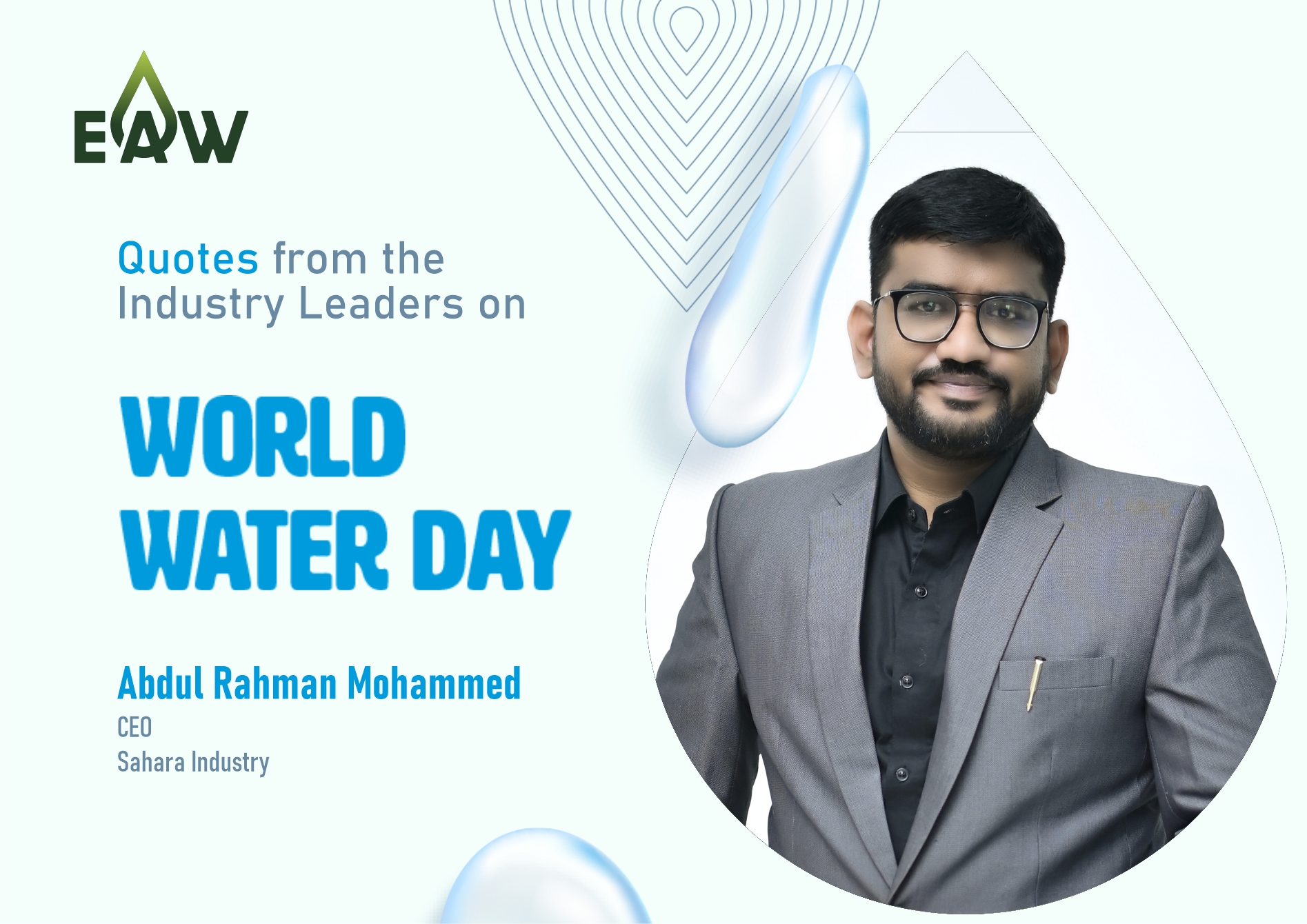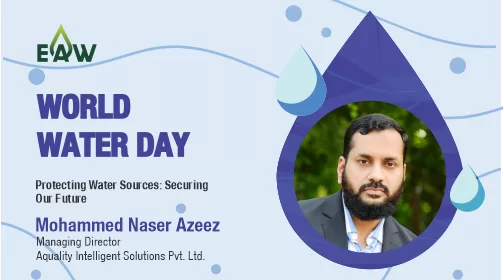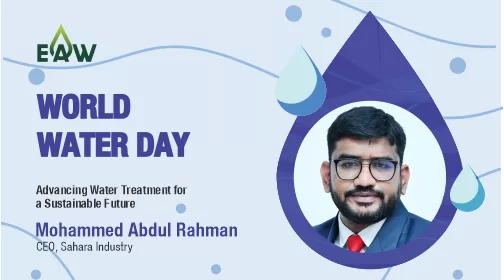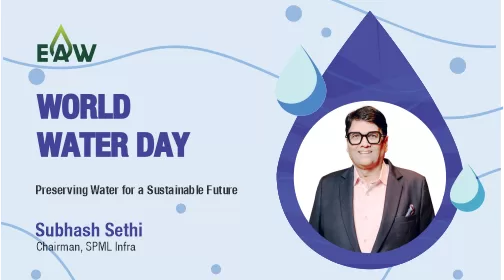By Abdul Rahman Mohammed, CEO, Sahara Industry –
Clean, safe and easily available water is important for people, production and the planet. Apart from drinking and domestic activities, it is also used for cleaning, agriculture, food production, and all commercial purposes. Economic development of a nation largely depends on adequate availability of safe water. Appropriate water supply and sanitation and better management of water resources not only boost countries’ economic growth but also greatly contribute in poverty eradication and public health.
The theme of World Water Day this year is about accelerating change to solve the water and sanitation crisis. Water affects us all in a major way, so everyone is needed to take action to enhance its sustainability. The theme is a thoughtful one, calling upon everyone residing on the planet earth to contribute, make a difference by changing the way we use, consume and manage water in our lives. Water is everyone’s business and every action counts towards ensuring water for all as per Sustainable Development Goal-6 (SDG6) defined by the United Nations and agreed by member countries. SDG6 envisage making access to safe drinking water and sanitation for everyone by 2030, a fundamental to everyone’s health, dignity, and prosperity. Yet, billions of people around the world still deficient of safely managed drinking water. It is a huge task given the time frame agreed upon in 2015 and now only seven more years available to make it happen.
Wastewater Scenario
Demand for water is rapidly increasing with the population growth, faster pace of urbanization and increasing pressures from the agriculture, energy and commercial production sector. When the demand for clean water is increasing, the production of wastewater is also rising exponentially. Urban India which is currently producing over 72,000 MLD (million litres per day) of municipal wastewater apart from 62,000 MLD of industrial wastewater, is finding it difficult to properly manage it. Almost 70 percent of generated wastewater is not receiving any kind of treatment prior to disposal at water bodies.
Contaminated water and poor sanitation are linked to transmission of diseases such as cholera, diarrhoea, dysentery, hepatitis A, typhoid and polio among others. Inadequate or inappropriately managed wastewater exposes people to preventable health risks while making drinking water dangerously contaminated and chemically polluted.
Way Ahead
To achieve the target agreed under SDG6, the pace of water infrastructure development would need to multiply between double to four times for the world to achieve universal coverage with basic drinking water services by 2030. With focused approach to make a difference in the way water and wastewater being treated, Sahara Industry has designed and manufactured advance treatment systems, membranes, softeners, ozonators, and sterilizer for water and wastewater treatment. The innovative solutions created by the company have contributed immensely by effectively treating municipal and industrial water thus helping to safeguard the health of people and increasing production in industries.
Investing in water infrastructure development for making provision of clean drinking water supply will result in many benefits, including quality of life, economic progress, environmental sustainability and overall health of people. Every dollar invested in water and sanitation interventions gives a $4.3 return in the form of reduced health care costs, reduced pollution of water and land resources, and gains in quality of life.






